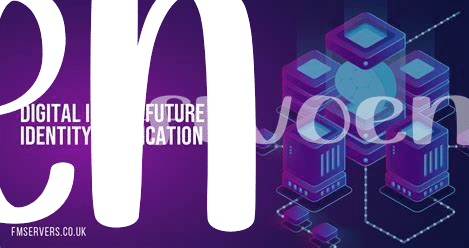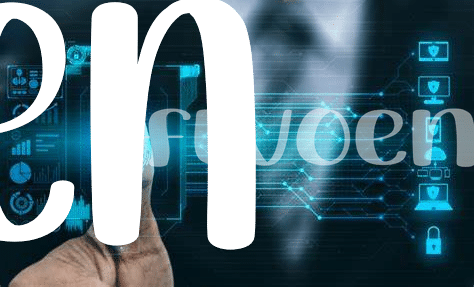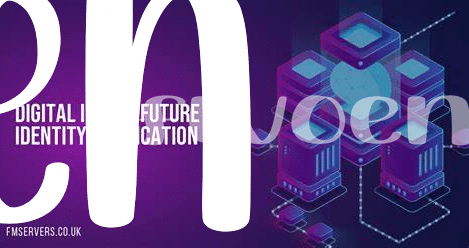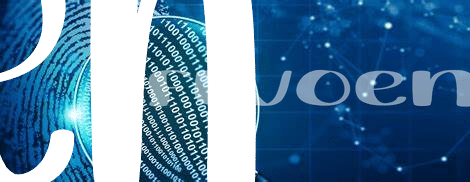🌍 Breaking down Blockchain: Simplifying the Complex

Imagine if the internet was a giant puzzle, and each piece was a secret code that kept your personal information safe. That’s kind of what blockchain is like. It’s a technology that brings together bits of data to form a secure, unbreakable chain of information blocks. Picture it like a digital ledger that is shared across many computers around the world. Each block in the chain contains a number of transactions, and every time a new transaction occurs, a record of that transaction is added to every participant’s ledger. It’s like if you and your friends had a shared notebook where you wrote down every trade of collectible cards, ensuring no one can cheat because everyone knows who traded what. This method is surprisingly efficient at keeping data secure, making it nearly impossible for hackers to mess with because changing one block would mean changing all the blocks in the chain, which would require an unimaginable amount of computing power. Essentially, blockchain acts as a highly trustworthy record keeper, ensuring the integrity and security of online transactions and information.
| Term | Description |
|---|---|
| Blockchain | A digital ledger of transactions distributed across the entire network of computer systems on the blockchain. |
| Block | A piece of digital information stored in a blockchain system. |
| Transaction | A record of any action taken within the blockchain, e.g., transfer of data or money between parties. |
🔑 Keys and Locks: Understanding Digital Identity
Imagine you have a special key, unlike any other, that proves who you are in the digital world. This isn’t a physical key but a unique digital one, something like a super-secure password that only you know. In the same way locks and keys work in the real world to keep your house safe, your digital identity and its key help keep your online info secure. This is where blockchain comes into play. Think of it as a super secure, public ledger that no one can tamper with. When you use your unique key on the blockchain, it checks to see if it’s really you without actually revealing who you are to everyone. This means your identity is both protected and verifiable. It’s a bit like a magic book that keeps secrets safe yet can instantly prove you are who you say you are. Blockchain’s role in making this possible is truly revolutionary, offering a level of security we’ve never seen before. To understand more about how technology is reshaping our world, take a look at how businesses are adopting new strategies at https://wikicrypto.news/adopting-renewable-energy-a-roadmap-for-sustainable-mining.
🛡️ Safety First: How Blockchain Protects Your Info

In a world where our personal information zig-zags across the internet daily, keeping that information safe is top of mind. Imagine your data is a precious gem, and the internet is a vast ocean where pirates are ready to snatch it away. Here enters blockchain, a kind of digital treasure chest that is incredibly tough for pirates to crack open. This technology breaks your information into tiny pieces, scatters them around, and only puts them back together when you say it’s okay. It’s like having a super-secure safe where only you know the combination.
Now, you might wonder, “How does it actually keep my info safe?” Well, think of blockchain as a series of blocks (hence the name) linked together. Each block is like a page in a ledger or a record book, but instead of being kept in one place, copies are spread out everywhere. That means if someone wanted to mess with the information, they’d have to change it in every copy, all at the same time, which is nearly impossible. It’s a bit like trying to cheat in a game by changing the rules, but you’d have to convince everyone playing, all at once. Blockchain doesn’t just lock up your personal details; it makes sure that if anyone tries to tamper with the lock, the alarm goes off everywhere, keeping your data as safe as can be.
📲 One Click Away: Streamlining Verification Processes

Imagine a world where proving who you are is as easy as clicking a button on your phone. That’s the vision blockchain technology is bringing to life, making identity verification faster, easier, and more secure. In the past, verifying your identity could feel like running a marathon, with loads of paperwork and time-consuming steps. But now, thanks to blockchain, this process has been streamlined. It’s about moving from a world where you’re constantly proving who you are to one where you can do it almost instantaneously. This shift not only saves time but also reduces the chance for errors or fraud. For businesses, this means a smoother customer experience, which is critical in our fast-paced world. And for users, it’s all about convenience and security, knowing that your digital identity is protected by the most advanced technology available today. This change is so significant that it’s even impacting how we integrate online payment systems, as discussed in more detail at integrating bitcoin payment gateways into online platforms versus ethereum. The promise of quick and secure identity verification through blockchain is not just an improvement; it’s a transformation of the digital world as we know it.
🤝 Trust but Verify: the Blockchain Promise
In the world of digital dealings, a nifty principle borrowed from an old Russian proverb, “trust, but verify,” has found a new best friend in blockchain technology. Imagine a system so smart that while it allows you to share important bits about who you are online, it also makes sure this information stays safe and sound. It’s like having an invisible, super-secure locker for your digital identity, where only you hold the key. This locker isn’t just any locker; it’s built on a foundation of trust, with numerous checks and balances ensuring everything about you is kept hush-hush unless you decide otherwise.
| Foundation | Principle | Outcome |
|————|———–|———|
| Blockchain | Trust but verify | Enhanced security and privacy for digital identities |
Indeed, blockchain goes beyond storing digital currencies. It serves as a stalwart guardian of your personal information in the cyber realm. By decentralizing data – scattering pieces of your digital identity across a network of computers – it assures that no single entity can tamper with your information. This revolutionary approach to verifying who you are online offers a promising leap towards a future where digital fraud and identity theft could become old tales. With each passing day, as we inch closer to that horizon, the blend of blockchain with digital verification processes heralds a new era of trust and security in the digital age.
👀 Looking Forward: the Future of Digital Identity Verification

As we navigate the fast-evolving world of technology, the future of digital identity verification is set to transform how we interact, transact, and establish trust online. Imagine a world where verifying your identity is as simple and secure as sending a text message. That’s where we’re headed, thanks to advancements in blockchain technology. This technology promises to revolutionize our digital world by making identity verification processes more streamlined and secure than ever before. Imagine not having to remember dozens of passwords or carry physical IDs. Instead, your digital identity could be easily and securely verified with just a few taps on your phone, reducing the risk of fraud and identity theft. Moreover, this shift towards digital identity verification not only offers enhanced security but also significantly improves user convenience and accessibility, making digital spaces more inclusive. For a deep dive into how this technology stacks up against current practices, especially in terms of sustainability and regulatory outlook, consider exploring bitcoin market trends and investment analysis for 2024 regulatory outlook, which contrasts sustainable bitcoin mining practices with those of ethereum, providing insight into future developments. The journey towards a more secure, efficient, and user-friendly digital identity verification system is just beginning, and blockchain is leading the way, promising a future where trust and security go hand in hand with convenience and inclusivity.
